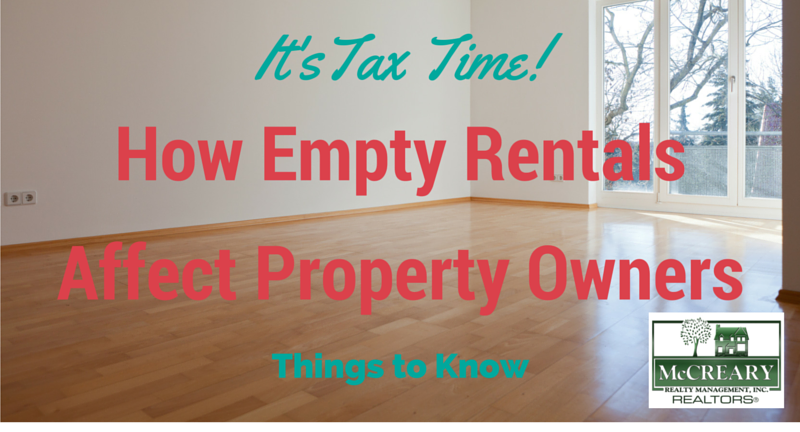
Empty rental property means many things to owners: loss of income, real estate that is subject to vandalism, possible increased maintenance, and tax implications.
For landlords who are preparing taxes, it is important to understand how empty rentals and loss of income are to be reported. Foremost, property owners should defer to qualified tax advisors who can customize their advice to the individual’s situation. However, there are some basics that might be helpful to know if your property has been empty during the last tax year.A property owner can write off a tax deduction on a rental house even while it sits empty. However, the owner cannot claim the loss as an added deduction or a write off. The empty rental can also limit the size of other deductions.
The qualifying deductions include advertising the rental property, as well as repairs, maintenance, insurance, mortgage interest and utilities. Of course property taxes are always a valid deduction unless they are paying for something that benefits the property such as a new sidewalk. Any improvements to the house can be deducted over several years through depreciation, such as a new roof, improved wiring, plumbing, or a new kitchen.
The IRS typically considers rental income as a “passive activity.” If a property owner spends more on the property than the income produces, this loss cannot be deducted from income except other passive activities. The difference in total passive income (rent) from total spent on the property (loss) is the amount that can be claimed against rental income for the next year.
Rental properties fall into different classifications of use. There is personal use and rental use. Personal would be when a property is used as a home for 14 days or 10 percent of the time that the owner rents it out rather than a full time rental. If friends or family stay for under market value, this would also be considered personal use. However, if the house is not rented, this empty period counts as a period of rental use.
There are varying factors to consider when looking at tax implications on a rental property. Depending on when you began to rent the property is what determines the limits on the deduction. Keeping good financial records for yourself and your accountant is very important in order to justify tax claims. Tax time is here, so being in the know about how your empty rental property affects your taxes is key to proper filing.
For more information read: http://budgeting.thenest.com/can-claim-loss-empty-rental-home-23241.html.

